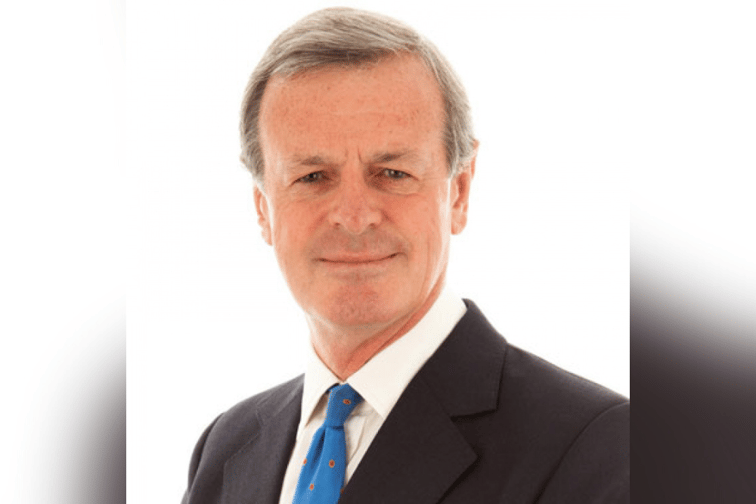

The conflict between Russia and Ukraine has been the top global news story for 2022, and rightly so. The war has disrupted the economies of the two countries, which are major agricultural and energy providers for countries across Europe and even beyond. The Russian invasion has also raised concerns about the state of global geopolitics, with some observers fearing the eruption of a third world war and a possible nuclear conflict.
During the recent Airmic conference in Liverpool, one of the keynote speakers was Sir Richard Shirreff (pictured above), former NATO deputy supreme allied commander for Europe, co-founder and managing partner of Strategia Worldwide, and executive vice chairman of risk platform Sigma7.
Shireff, who has seen frontline action in Bosnia, Kosovo, Northern Ireland and the First Gulf War, said that the world is in a geopolitical “perfect storm” that started when Russia invaded Crimea in 2014.
“Let’s make no mistake about it, we are engaged in war with Russia, albeit via a proxy in Ukraine,” Shireff said. “This is a war that affects every single one of us and is already having global implications and will continue to have global implications for some time to come.”
According to Shireff, the war in Ukraine was a foreseeable event, marked by a “staggering and egregious failure” of risk management. He disagreed with the idea that no one could’ve seen the 2022 invasion coming, as the signs have been there for eight years.
In 2014, after the Russian Federation took over Crimea, Vladimir Putin made a speech, which Shireff described as “chilling”, laying out his thinking – that the breakup of the Soviet Union was the greatest geopolitical catastrophe of the 20th century and centering on the threat the West poses to Russia. Putin also said that the most appropriate security settlement for Europe is a “new Yalta,” harkening back to the 1945 Yalta Conference, which gave the USSR near-uncontested influence in Eastern Europe.
“You could imagine what chills are sent down the spines of our Eastern European friends and allies who remember their enslavement under Stalin and under the old Yalta,” Shireff said.
However, the West did not take notice that the Russian leader was a real existential threat, Shireff said, with a goal to rebuild a Russian empire by eliminating Ukraine as a free-standing, democratic, and liberal state and controlling the Black Sea coast.
Shireff said that Putin’s plans came to a culmination on Feb. 24, when the next phase of the invasion of Ukraine began. But Putin made three major miscalculations – underestimating the resolve of Ukrainian resistance, overestimating the capability of Russian armed forces, and underestimating the Western response, emboldened by the absence of backlash over annexing Crimea in 2014.
Shireff said that the outcome of the war rests on NATO and the West “stepping up to the mark.” If the Western allies do not take sufficient action, the grinding war of attrition will continue, with Russia gradually taking over Ukrainian territory and eventually overwhelming the resistance.
According to Shireff, had NATO intensified its support for Ukraine in the Battle of Kyiv in March, the momentum could’ve greatly swung towards Ukraine’s favor. However, the West hesitated, leading to Ukrainians struggling to maintain their defense.
“But it’s not too late,” he said. “We’ve seen the American decision to deploy their long-range precision missiles, we’ve seen the British decision to deploy their multiple launch rocket systems, and there will be other nations ramping it up. But it’s got to happen quickly.”
Shireff said that the only way forward for NATO is to inflict military defeat on Putin, as appeasement by letting him take a portion of Ukraine will only lead to more conflict later. This, he said, can only be achieved by giving Ukrainians the tools to do the job and taking a significant risk, which includes the risk of escalation. But Shireff said that the use of nuclear and chemical weapons by Russia remains a low possibility.
“There is a massive risk,” Shireff said. “But the way to manage that risk is to tighten our belts and prepare ourselves for the worst case – prepare our societies, our nations, and our armed forces for war with Russia.”
The preparation includes massive ramping up of defense spending, raising it to 4% or 5% of GDP, or possibly more, to fuel rearmament of NATO members, he said. But this comes at a huge sacrifice, with Europe struggling with the cost-of-living crisis, high energy prices, transportation problems, and leadership vacuums following the COVID-19 pandemic. He also related these crises to the collapse of the Sri Lankan economy, saying that what happened there is a direct result of the Russo-Ukrainian war.
For businesses, Shireff said that to build resilience, they must understand the external forces at work and rethink their risk approach and crisis management plans by avoiding looking at risk in silos and teasing out the relationships between risks by “war-gaming” their plans.
“We are in that perfect storm right now,” Shireff said. “But the way to ensure we are resilient as possible against that perfect storm is through preparing for the worst case and accepting the sacrifices. Because anything else will be much worse.”
